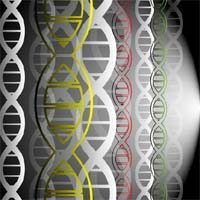Faulty DNA Repair Genes May Raise Mesothelioma Risk

Not everyone who is exposed to asbestos has the same risk of developing mesothelioma. Now, new research supports the idea that some people’s genetic inability to repair DNA damage at the cellular level may raise their risk of mesothelioma.
When asbestos dust is inhaled, tiny fibers can lodge in the lungs and stay there for decades, causing irritation and inflammation that have been linked to a range of illnesses, including asbestosis, lung cancer and malignant mesothelioma.
But scientists have not been able to come up with a specific genetic explanation for why different people exposed to the same amount of asbestos dust do not contract these diseases at the same rate. Now, a group of Italian researchers believe they may have found a partial answer by studying the records of hundreds of mesothelioma patients and healthy people in towns with high asbestos pollution.
The study focused on single nucleotide polymorphisms (SNPs), or variants, in 15 different genes that could be involved in causing malignant pleural mesothelioma. Four hundred and three people whose genes were tests (151 mesothelioma patients, 252 controls) came from the town of Casale Monferrato and 113 (69 mesothelioma patients, 44 controls) came from the town of Turin.
The researchers found that two genes involved in DNA repair – XRCC1 and ERCC1 – were associated with mesothelioma. When the team looked at only people who were known to have been exposed to asbestos, the risk increased with an increased number of XRCC1 or ERCC1 alleles. Writing in the journal Mutation Research, the team concludes, “The association of malignant pleural mesothelioma with DNA repair genes supports the hypothesis that an increased susceptibility to DNA damage may favor asbestos carcinogenicity.”
Five years ago, the same group of researchers was the first to report an association between polymorphisms in DNA repair genes and asbestos-associated malignant pleural mesothelioma, indicating a genetic component in mesothelioma development.
Mesothelioma is an aggressive cancer that can be very difficult to treat. New treatments are needed. Understanding the biological mechanisms that cause the disease could eventually lead to better treatments.
Sources:
Betti, M et al, “XRCC1 and ERCC1 variants modify malifnant mesothelioma risk: A case-control study”, January 25, 2011, Mutation Research (Epub ahead of print)
Dianzani, I et al, “Polymorphisms in DNA repair genes as risk factors for asbestos-related malignant mesothelioma in a general population study”, July 25, 2006, Mutation Research, pp. 124-34





